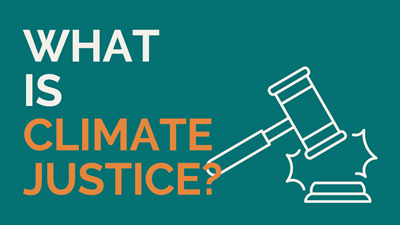The concept of climate justice acknowledges that those who are primarily responsible for climate breakdown are not those who are impacted by it; therefore, those who benefited from unrestricted greenhouse gas emissions have more responsibility to stop global warming and help other countries.
―
What is Climate Justice?
―
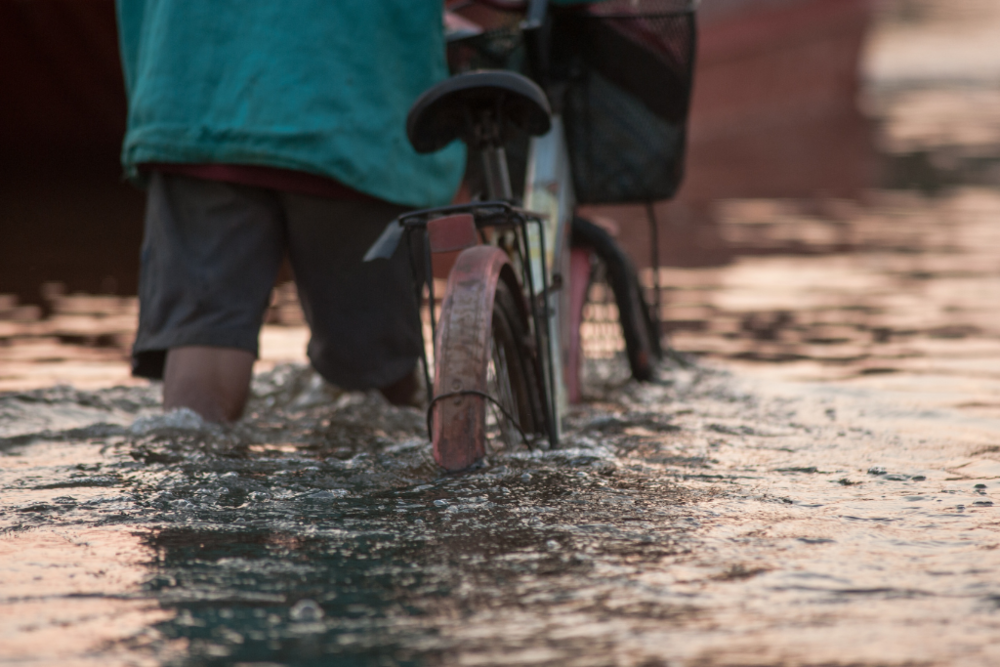
A. The concept of climate justice acknowledges that those who are primarily responsible for climate breakdown are not those who are impacted by it; therefore, those who benefited from unrestricted greenhouse gas emissions have more responsibility to stop global warming and help other countries.
Everybody on Earth is affected by climate breakdown, but the level of impact is disproportionate. The richest countries have contributed most to the problem through industrialization for the past 200 years. Ironically, those most affected by the emitted greenhouse gas in the process are the low-income countries. Countries in Africa, Central and South Americas, and Asia are most vulnerable because of their geographical locations, natural environments, and economic situations. And climate justice is a new concept that recognizes this inequality.
Climate justice calls for countries that became wealthy through unrestricted gas emissions to have greatest responsibility to mitigate climate change and help other countries adapt to climate change. In addition, the responsibility should also be distributed accordingly within a country based on the gap between the rich and the poor.
―
Who is responsible for climate change?
―
A. The level of cumulative gas emissions in each country makes it clear who bears the greatest responsibility.
Global Carbon Poject (GCP) is an organization that tracks the level of greenhouse gas emissions from different countries. Scientists and other experts have reported that the world’s cumulative CO2 emissions from 1750 to 2020 were 1,665 billion tons: (1) USA (416.7 billion tons - 24.6%), (2) China (235.5 billion tons - 13.9%), (3) Russia (115.3 billion tons - 6.8%), followed by Germany, the United Kingdom, and Japan.
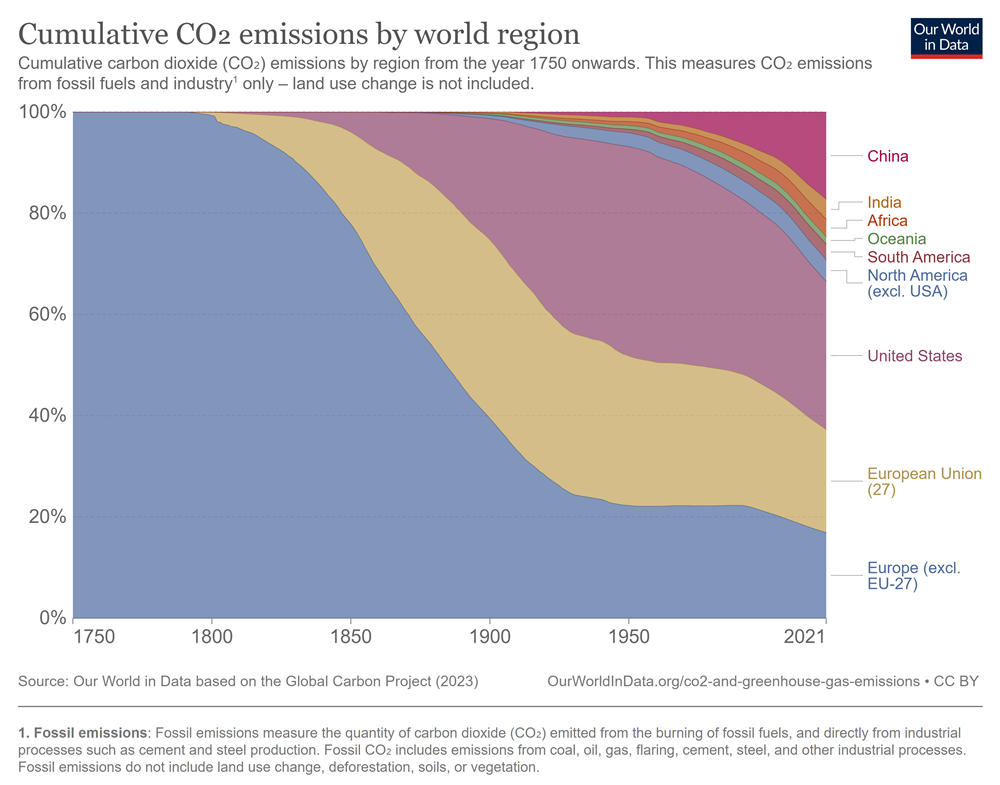
In contrast, the cumulative CO2 emissions from developing countries are very low, mostly in the global south: Africa (2.88%) and South America (2.62%).
Unfortunately, countries that emitted less greenhouse gases actually bear the brunt of climate change damage. For example, Pakistan was hit by massive flooding that submerged a third of its land in June 2022. And Kenya recently suffered its worst drought in 40 years, which killed 2.5 million of their livestock. As the effects of climate crisis accelerate, the damage to climate-vulnerable countries will exacerbate.
Who is responsible for climate change?
Meanwhile, climate inequality within countries is also prevalent. Multiple studies report the rise of the emissions gap between the polluting elite (the top richest of the world’s population) and the rest of the world.
Let’s take a look at the Climate Inequality Report 2023 released by the World Inequality Lab in January.
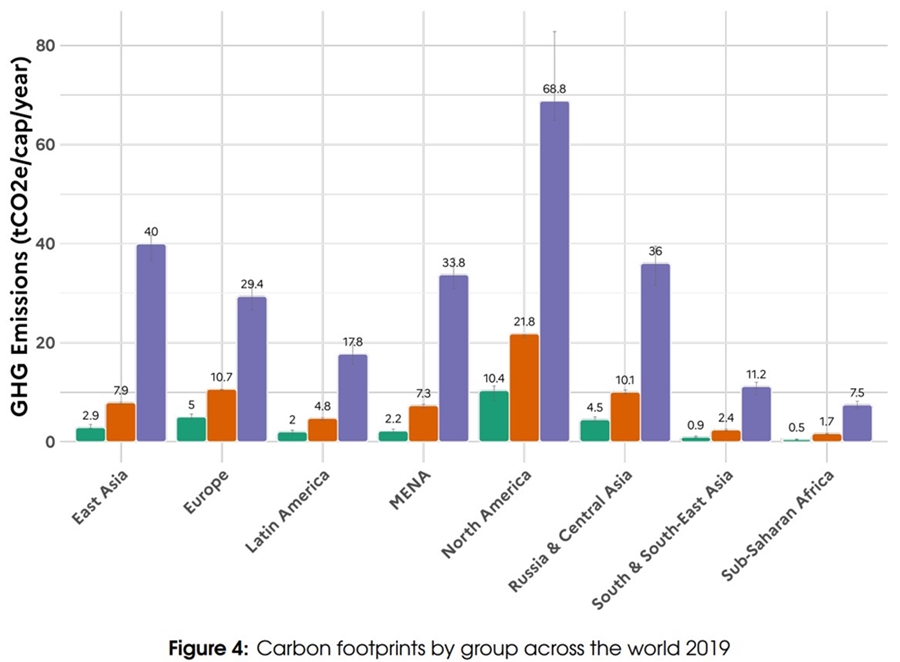
(Source : Chancel, L., Bothe, P., Voituriez, T. (2023) Climate Inequality Report 2023, World Inequality Lab Study 2023/1)
The report shows annual per capita CO2 emissions in 2019 by income level: top 10% in purple, middle 40% in red, and bottom 50% in green. The wide disparity between the top 10% (in purple) and the bottom 50% (in green) is evident in each region. Inequality within countries is also clearly depicted across developed as well as developing countries.
―
Call for Climate Justice
―
In March 2019, in a small lecture hall at the University of the South Pacific, a discussion took place about the climate crisis as a human rights issue and how the climate change violates people’s rights. Soon after, the 27 Law students from 8 Pacific Island countries in that lecture hall joined together to form an organization called the Pacific Islands Students Fighting Climate Change (PISFCC).
Their goal was to begin a campaign to persuade Pacific Island leaders to take the issue of climate change, affecting the lives of Pacific Islanders, and human rights to the International Court of Justice (ICJ).
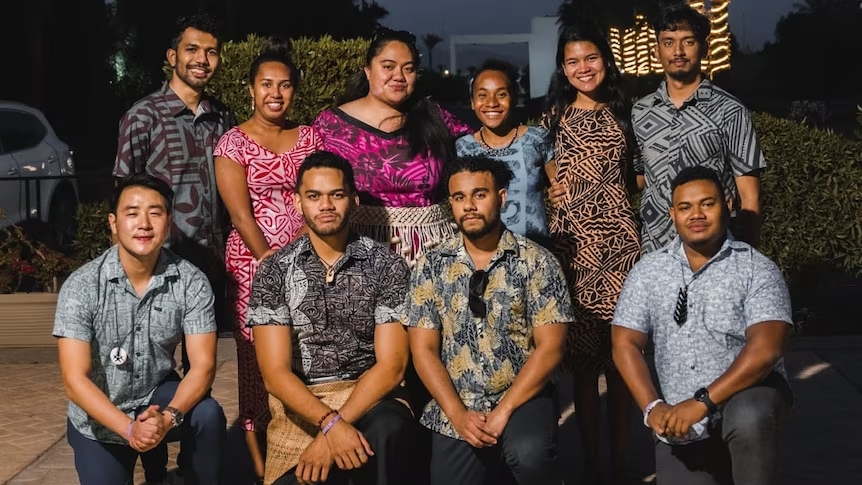
(Source: PISFCC, PISFCC members at the 2022 United Nations Climate Change Conference (COP27))
Four years later, on March 29th, 2023, the UN General Assembly adopted a Resolution seeking an ICJ advisory opinion on climate justice. While advisory opinions issued by the ICJ in non-contentious cases are not legally binding, they hold significant legal weight and moral authority due to the ICJ’s position as the highest court globally. Therefore, advisory opinions may contribute to the clarification and development of international law.
―
When will losses of climate change be compensated for?
―
Providing economic support is one of the most important and urgent ways to address climate inequality. According to the World Bank, in order for fair distribution of the damage caused by climate change, the USA and the European Union (including the UK) should pay at least 50%, China 10%, and India 0.5%.
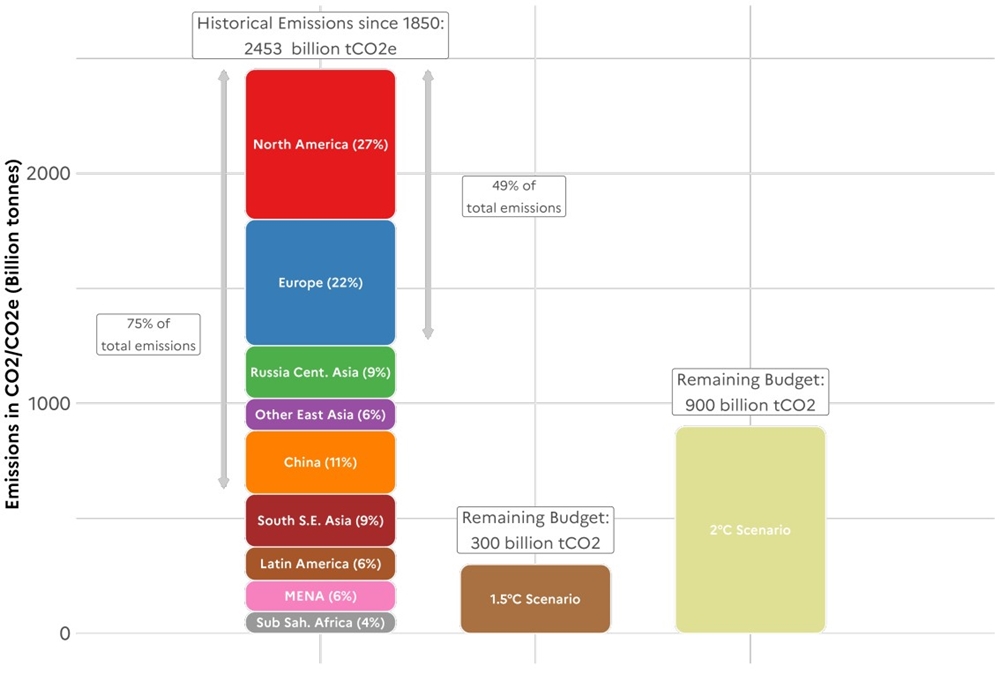
(Source : Chancel, L., Bothe, P., Voituriez, T. (2023) Climate Inequality Report 2023, World Inequality Lab Study 2023/1)
However, our reality is that we still have a long way to solve the issue of climate crisis.
In fact, an international agreement on climate finance was reached more than a decade ago. At the 2009 UN Climate Change Conference in Copenhagen, Denmark (COP15), developed countries had agreed to create a climate fund worth 100 billion USD every year until 2020 to help developing countries reduce their emissions. However, they have not yet decided which country will contribute how much.
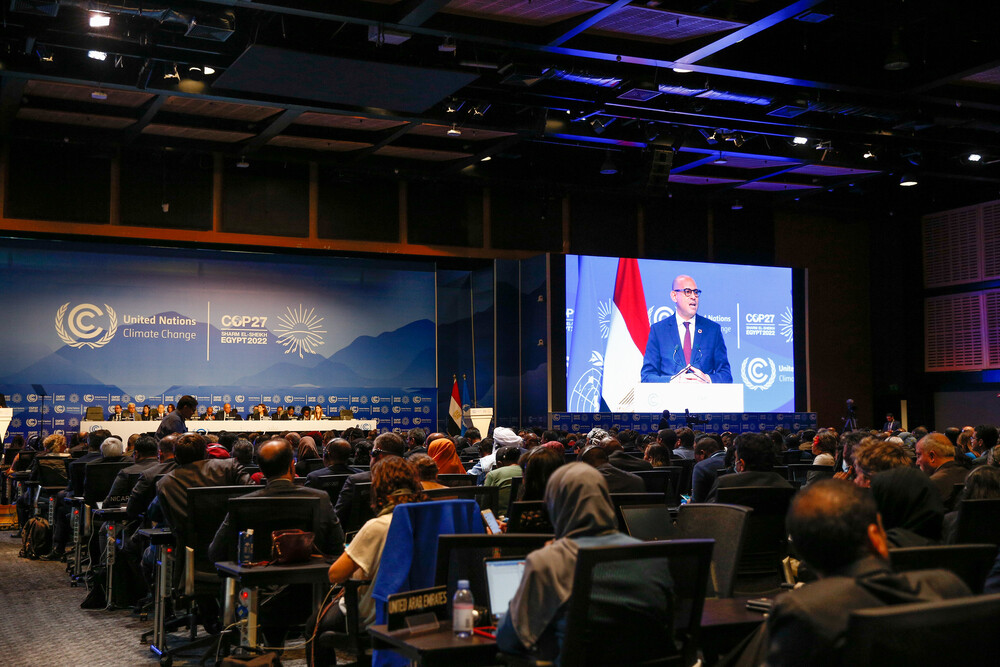
(Source :©UN. https://www.un.org/en/climatechange/cop27/photos)
Delegation in a standing ovation as COP27 President Sameh Shoukry (third left) delivers a closing statement (COP27 in Egypt).
Likewise, participating nations at the 2022 UN Climate Conference in Sharm el-Sheikh, Egypt (COP27) agreed to create a loss and damage fund for developing countries experiencing increasingly severe climate change events; but the details remain unclear.
No concrete decisions have been made regarding the fund - methods of funding, eligibility, amount of funding, etc. The extent to which “disaster-prone countries” will be included as eligible is also subject to future deliberation and assessment.
If the acceleration of the climate crisis continues, it could pose a threat to basic human rights and security not only of vulnerable countries but of the entire global population. As responsible global citizens, it is crucial that we recognize the importance of implementing climate justice measures to provide compensation to the countries most heavily impacted by climate change.
“To embrace the future,
we must expand the scope of vocations that can herald the coming of peace.
Even though we may never meet our descendants, we must make sure that all their activities will harmonize in peaceful societies and nations.”
-Dr. Hak Ja Han Moon
Founder of Sunhak Peace Prize-
Learn more about this issue: Peace Issue - A Just Transition Peace Issue - Levying a Tax even on Carbon! Youtube - What is Climate Justice? |
Written by Sharon Choi
Director of Planning
Sunhak Peace Prize Secretariat


